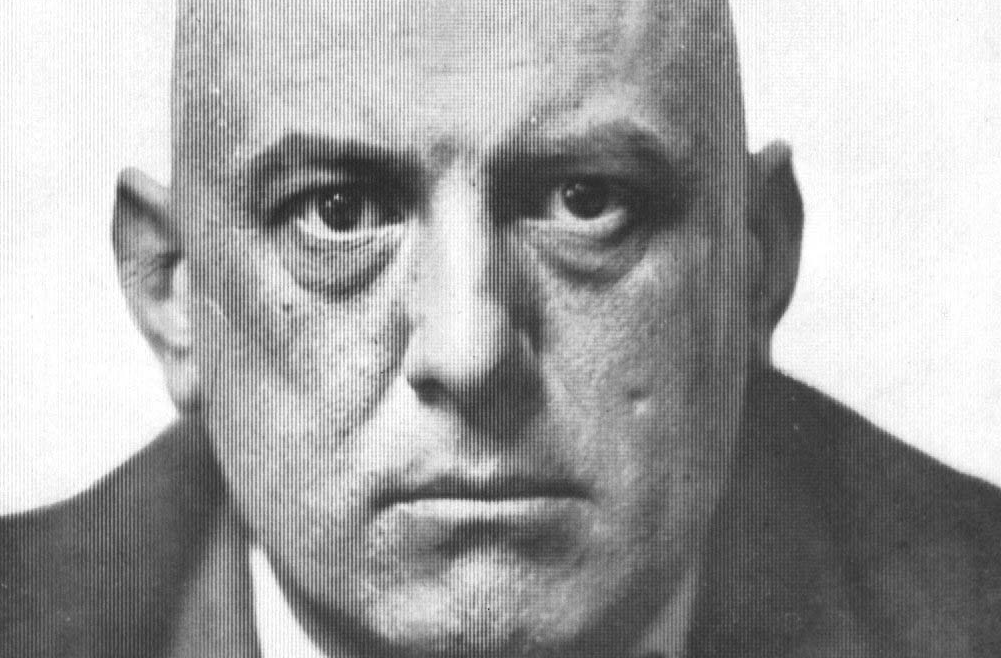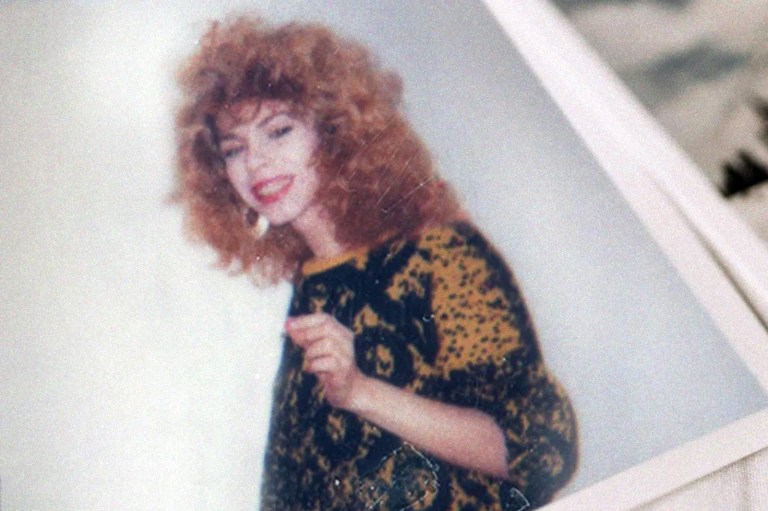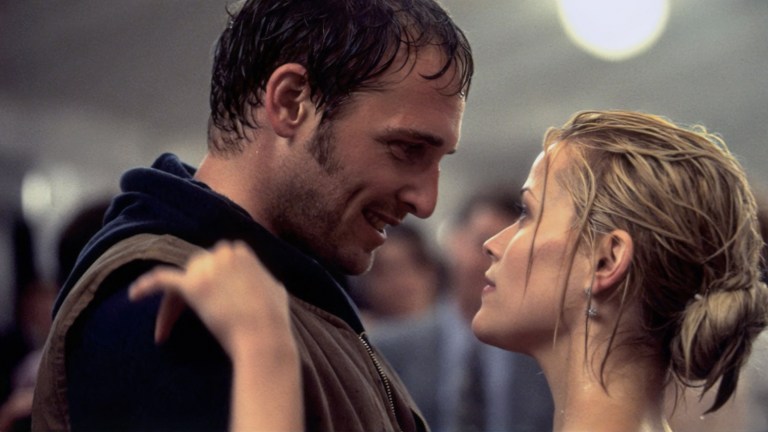
34 Shockingly Deep Quotes From Aleister Crowley, The ‘Wickedest Man In The World’
“Remember all ye that existence is pure joy; that all the sorrows are but as shadows; they pass & are done; but there is that which remains.”
By ![]() Daniel Hayes
Daniel Hayes
Referred to in his day as the “most wicked man in the world,” mystical and esoteric figure Aleister Crowley is today considered to be among the top 100 most important British figures in that nation’s history.
His ideas are just as provocative today as they were decades ago.
1.
“I was in the death struggle with self: God and Satan fought for my soul those three long hours. God conquered — now I have only one doubt left — which of the twain was God?”
2.
“The sin which is unpardonable is knowingly and willfully to reject truth, to fear knowledge lest that knowledge pander not to thy prejudices.”
3.
“People think that talking is a sign of thinking. It isn’t, for the most part’ on the contrary, it’s a mechanical dodge of the body to relieve oneself of the strain of thinking, just as exercising the muscles helps the body to become temporarily unconscious of its weight, its pain, its weariness, and the foreknowledge of its doom.”
4.
“It is a terrible error to let any natural impulse, physical or mental, stagnate. Crush it out, if you will, and be done with it; or fulfill it, and get it out of the system; but do not allow it to remain there and putrefy. The suppression of the normal sex instinct, for example, is responsible for a thousand ills. In Puritan countries one inevitably finds a morbid preoccupation with sex coupled with every form of perversion and degeneracy. ”
5.
“Black magic is not a myth. It is a totally unscientific and emotional form of magic, but it does get results — of an extremely temporary nature. The recoil upon those who practice it is terrific.”
6.
“What the eye doesn’t see, the heart doesn’t grieve over.”
7.
“Love is the law, love under will.”
8.
“It is the mark of the mind untrained to take its own processes as valid for all men, and its own judgments for absolute truth.”
9.
“Balance every thought with its opposition. Because the marriage of them is the destruction of illusion.”
10.
“To read a newspaper is to refrain from reading something worthwhile. [….] The first discipline of education must therefore be to refuse resolutely to feed the mind with canned chatter.”
11.
“The ordinary man looking at a mountain is like an illiterate person confronted with a Greek manuscript.”
12.
“…in the absence of will power, the most complete collection of virtues and talents is wholly worthless.”
13.
“The key of joy is disobedience.”
14.
“Since all things are God, in all things thou seest just so much of God as thy capacity affordeth thee.”
15.
“Further, an excess of legislation defeats its own ends. It makes the whole population criminals, and turns them all into police and police spies. The moral health of such a people is ruined for ever; only revolution can save it.”
16.
“The more necessary anything appears to my mind, the most certain it is that I only assert a limitation.”
17.
“The man who denounces life merely defines himself as the man who is unequal to it.”
18.
“Do not imagine that art or anything else is other than high magic! – is a system of holy hieroglyph. The artist, the initiate, thus frames his mysteries. The rest of the world scoff, or seek to understand, or pretend to understand; some few obtain the truth.”
19.
“A red rose absorbs all colors but red; red is therefore the one color that it is not.”
20.
“Am I right in suggesting that ordinary life is a mean between these extremes, that the noble man devotes his material wealth to lofty ends, the advancement of science, or art, or some such true ideal; and that the base man does the opposite by concentrating all his abilities on the amassing of wealth?’
Exactly; that is the real distinction between the artist and the bourgeois, or, if you prefer it, between the gentleman and the cad. Money, and the things money can buy, have no value, for there is no question of creation, but only of exchange. Houses, lands, gold, jewels, even existing works of art, may be tossed about from one hand to another; they are so, constantly. But neither you nor I can write a sonnet; and what we have, our appreciation of art, we did not buy. We inherited the germ of it, and we developed it by the sweat of our brows. The possession of money helped us, but only by giving us time and opportunity and the means of travel. Anyhow, the principle is clear; one must sacrifice the lower to the higher, and, as the Greeks did with their oxen, one must fatten and bedeck the lower, so that it may be the worthier offering.”
21.
“A single ego is an absurdly narrow vantage point from which to view the world.”
22.
“The Great Work is the uniting of opposites. It may mean the uniting of
the soul with God, of the microcosm with the macrocosm, of the female
with the male, of the ego with the non-ego—or what not.”
23.
“Light illuminates the path of humanity: it is our own fault if we go over the brink.”
24.
“On the Path of the Wise there is probably no danger more deadly, no poison more pernicious, no seduction more subtle than Spiritual Pride; it strikes, being solar, at the very heart of the Aspirant; more, it is an inflation and exacerbation of the Ego, so that its victim runs the peril of straying into a Black Lodge, and finding himself at home there.”
25.
“In every Magical, or similar system, it is invariably the first condition which the Aspirant must fulfill: he must once and for all and for ever put his family outside his magical circle.
Even the Gospels insist clearly and weightily on this.
Christ himself (i.e. whoever is meant by this name in this passage) callously disowns his mother and his brethren (Luke VIII, 19). And he repeatedly makes discipleship contingent on the total renunciation of all family ties. He would not even allow a man to attend his father’s funeral!”
26.
“So nobody must be allowed to think at all. Down with the public schools! Children must be drilled mentally by quarter-educated herdsmen, whose wages would stop at the first sign of disagreement with the bosses. For the rest, deafen the whole world with senseless clamour. Mechanize everything! Give nobody a chance to think. Standardize “amusement.” The louder and more cacophonous, the better! Brief intervals between one din and the next can be filled with appeals, repeated ’till hypnotic power gives them the force of orders, to buy this or that product of the “Business men” who are the real power in the State. Men who betray their country as obvious routine.
The history of the past thirty years is eloquent enough, one would think. What these sodden imbeciles never realize is that a living organism must adapt itself intelligently to its environment, or go under at the first serious change of circumstance.”
27.
“Bind nothing! Let there be no difference made among you between any one thing & any other thing; for thereby there cometh hurt.”
28.
“Remember all ye that existence is pure joy; that all the sorrows are but as shadows; they pass & are done; but there is that which remains.”
29.
“The Victrola, the Movies, a lecture: such are the three American alternatives to Silence, Scandal and Squabble.
Or else, get drunk. America knows no other devices to enable its inhabitants to endure either their own company or that of their fellow-creatures.”
30.
“The technical developments of almost every form of wealth [e.g., oil, minerals] are the forebears of Big Business; and Big Business, directly or indirectly, is the immediate cause of War.”
31.
“The so-called poet with his vague dreams and ideals is indeed no better than a harmless lunatic; the true poet is the worker, who grips life’s throat and wrings out its secret, who selects austerely and composes concisely, whose work is as true and clean as razor-steel, albeit its sweep is vaster and swifter than the sun’s!”
32.
“Every individual has some qualities that endear him to some other. And per contra, I doubt if there is any class which is not detestable to some other class. Artists, police, the clergy, “reds,” foxhunters, Freemasons, Jews, “heaven-born,” women’s clubwomen (especially in U.S.A.), “Methodys,” golfers, dog-lovers; you can’t find one body without its “natural” enemies. It’s right, what’s worse; every class, as a class, is almost sure to have more defects than qualities. As soon as you put men together, they somehow sink, corporatively, below the level of the worst of the individuals composing it. Collect scholars on a club committee, or men of science on a jury; all their virtues vanish, and their vices pop out, reinforced by the self-confidence which the power of numbers is bound to bestow.”
33.
“The fact is that very few of us know what words mean; fewer still take the trouble to enquire. We calmly, we carelessly assume that our minds are identical with that of the writer, at least on that point; and then we wonder that there should be misunderstandings!
The fact is (again!) that usually we don’t really want to know; it is so very much easier to drift down the river of discourse, “lazily, lazily, drowsily, drowsily, In the noonday sun.”
Why is this so satisfactory? Because although we may not know what a word means, most words have a pleasant or unpleasant connotation, each for himself, either because of the ideas or images thus begotten, of hopes or memories stirred up, or merely for the sound of the word itself.”
34.
“All this talk about ‘suffering humanity’ is principally drivel based on the error of transferring one’s own psychology to one’s neighbour. The Golden Rule is silly. If Lord Alfred Douglas (for example) did to others what he would like them to do to him, many would resent his action.” ![]()











